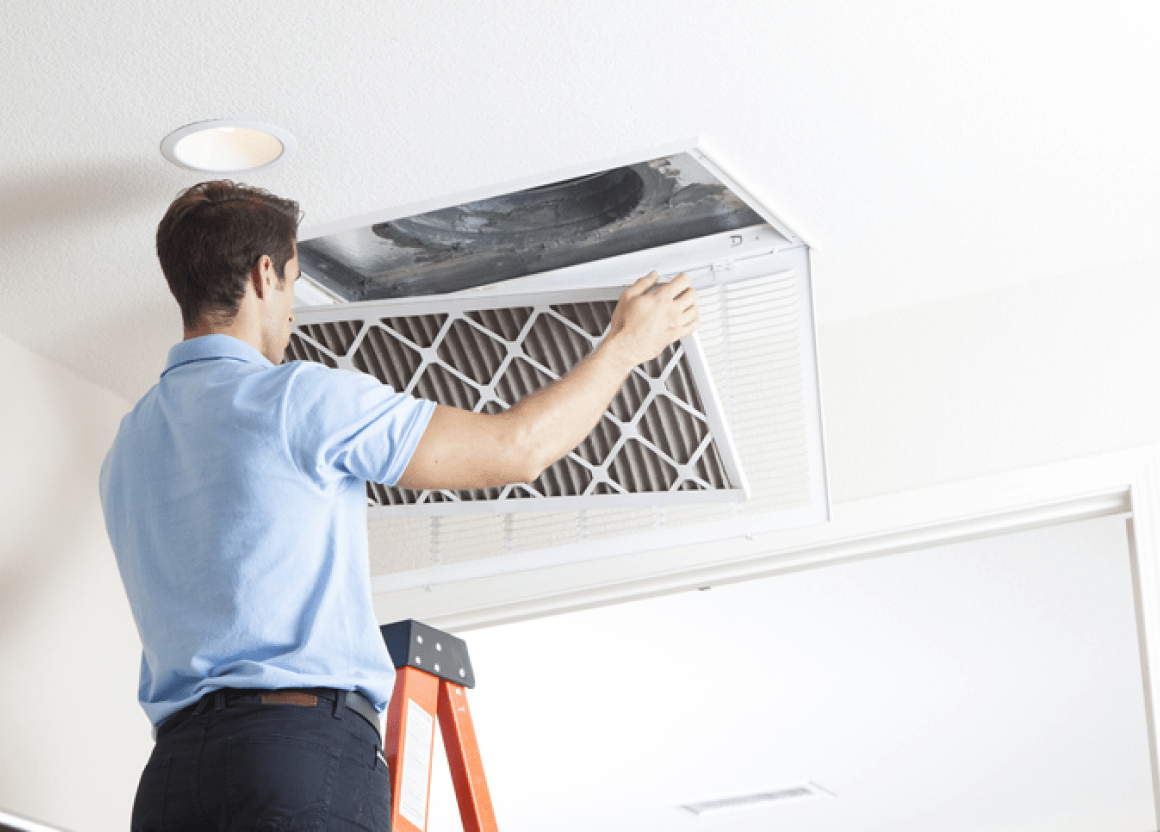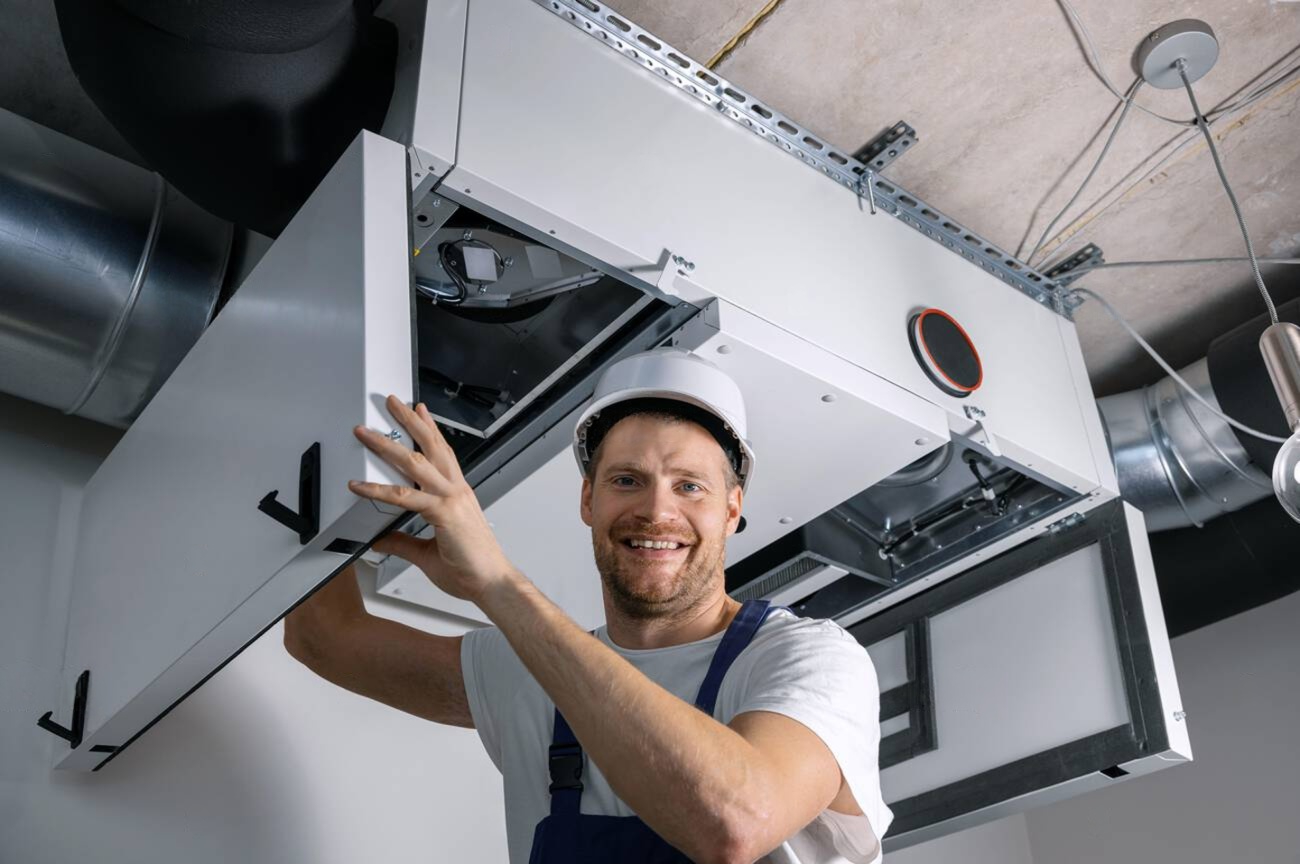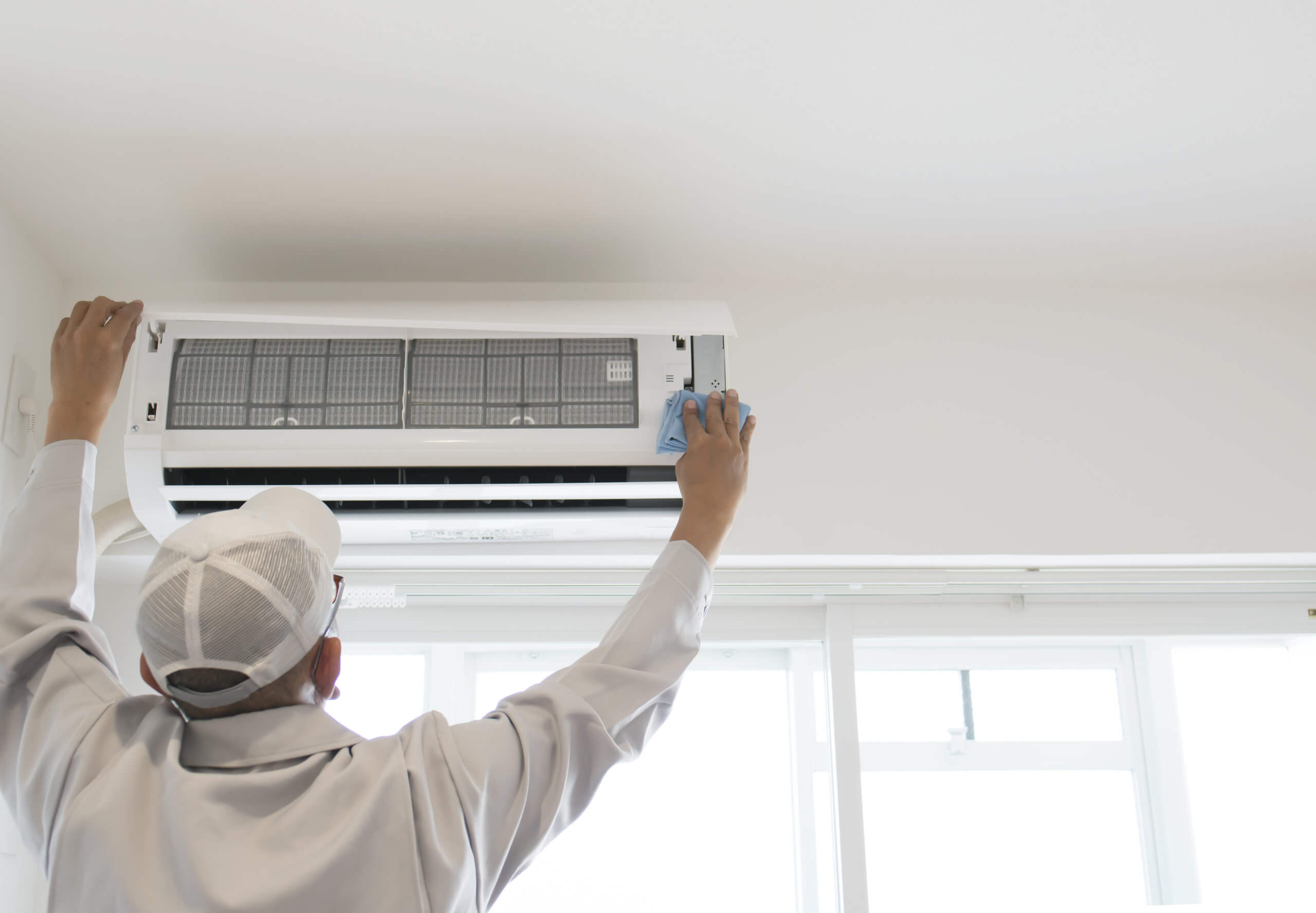The data on the average annual temperature on our planet suggests that now, more than ever, we need to keep our cool. All the more reason to install an eco-friendly HVAC system in place. But how much does it cost to replace an HVAC system?
Florida residents: when you’re living with an heating, ventilation, and air conditioning (HVAC) system that needs replacing, staying indoors can feel more like a burden than a blessing.
We’ve been there before, and we get it. Fortunately, we’re here to provide some ice-cold relief to your HVAC woes.
If you’re looking to do your wallet and our planet some good — or if you’re wondering how much an HVAC system replacement costs — you’ve come to the right place.
In this article, we’ll discuss;
- The cost of replacing an HVAC system
- 5 key factors that influence HVAC replacement costs
- Costs of essential HVAC components
- How to minimize the costs of your next HVAC system replacement
- Available financing options for HVAC system replacements
- Frequently asked questions about replacing HVAC systems
Let’s dive in!
Table: Five common factors affecting the cost of an HVAC replacement
| 1. The size of the house 2. The ductwork needed 3. The brand of the HVAC unit installed 4. The HVAC system’s SEER value (we’ll explain what this is in the sections below) 5. The labor an HVAC technician needs to complete the job |
Breaking down the cost to replace an HVAC system (by unit)

An HVAC system includes the following infrastructure:
- An air conditioner
- A furnace
- Heat pumps
Depending on the unit, you can expect to pay a different amount depending on what you need with your replacement. Let’s take a look at the cost of each piece of the HVAC system in greater detail.
Air conditioner costs explained
Three different types of air conditioners exist. Here are some of the general costs of air conditioners ranging from economy to upper-end air conditioners.
- Self-installed window and portable units ($): tend to be more economical and range from $150 to $500 including installation.
- Ductless split systems ($$): are for people looking for a more advanced cooling system. Ductless split systems cool larger areas and can range anywhere from $2,000 to $14,500 including installation depending on the size of the area cooled.
- Central air conditioning systems ($$$): similar to a ductless split system, central AC systems are larger and tend to cost $1,900 to $5,500.
Furnace costs explained
The cost of furnaces will depend on the type of fuel used. From most to least affordable, your options include electrical, natural gas, and oil furnaces.
- Electrical furnaces: including installation cost $1,800 to $8,000 on average
- Natural gas furnaces: including installation cost $3,800 to $11,800
- Oil furnaces: including installation cost $5,540 to $11,000
Heat pump costs explained
Different heat pumps exist. For a mini-split heat pump, expect to pay less, whereas a supplemental electrical heat pump will cost more.
Below, you can find different types of heat pumps and their associated costs (including installation):
- Air source heat pumps: $3,500 to $20,000 depending on the system used
- Geothermal heat pumps: $10,000 to $50,000 depending on factors such as property size and more
- Mini-split heat pumps: $1,300 to $8,000 depending on the unit amount and size ordered
- Hybrid heat pumps: anywhere from $2,500 to $10,000 or more depending on whether a complete system is installed
- Solar heat pumps: depends on the size of the job
- Supplemental electric heat pumps: $4,200 to $8,000 depending on a variety of factors
Speaking of factors, we’ll dive into those next.
5 Factors that influence HVAC replacement and installation costs

The main two components that an HVAC system consists of are:
- The heating and cooling units (such as the furnace and air conditioner)
- Ductwork (the system of tubes that circulate the air throughout the house)
A full HVAC replacement can cost much more than a partial HVAC replacement. Whether you need just a new furnace, a cooling system, or both, the five factors that influence the total cost of installing and replacing a new HVAC system include:
1. The size of the house
2. The ductwork needed
3. The brand of the HVAC unit installed
4. The HVAC system’s SEER value (we’ll explain what this is in the sections below)
5. The labor invested by an HVAC technician to complete the job
1. The size of the house
The larger the property— that is, the larger the square footage of your home or business — the larger the HVAC will be. In general, you’ll also pay more when replacing a larger HVAC system.
With that said, a well-insulated property can also influence your HVAC replacement cost. For example, you may be able to skip out on replacing the entire HVAC system because the insulation on your property is sound.
With sound insulation, your HVAC system can run with greater efficiency. A more efficient HVAC system means less of a need for an HVAC replacement.
2. Ductwork needed
HVAC duct replacement costs can contribute to the overall cost of an HVAC replacement. Ductwork is the tubes that transport the heat and cooled air through the home.
They are the arteries to your HVAC system, and your HVAC system is the heart, pumping cool and warm air into your property.
New ductwork can contribute to the overall cost of an HVAC replacement. If you need to make repairs to existing ductwork in your current system, you may also incur extra costs.
3. The brand type of the HVAC unit
Just like brand-name clothing, brand-name HVAC units carry higher price tags. The most common HVAC units by brand include:
- High-end brands: York and Trane
- Mid-range brands: Magic Pak, Mitsubishi, Carrier, and Lennox
- Economical: Rheem, Amana/Goodman, and Bryant
A quality HVAC team should be able to provide you with all different types of HVAC brands.
For example, at Streamline Air, we work with customers to provide top-quality A/C maintenance and repairs regardless of brand. We have partnerships with a variety of brands to make living and working in your property comfortable and relaxed.
4. An HVAC’s Seasonal Energy Efficiency Ratio (SEER)
SEER stands for seasonal energy efficiency ratio. Heating and cooling experts use this ratio to measure an HVAC system’s energy efficiency.
In other words, the higher the SEER value, the more energy efficient the system. And the more energy-efficient the system, the more money that can be saved on utility bills.
Units with higher SEER values tend to be newer and more expensive than those with lower SEER values.
If you’re curious about which type of SEER-based HVAC unit is best for your property, contact an HVAC professional. They’d be more than happy to walk you through your options.
5. How involved the job is for HVAC teams
The cost of labor on an HVAC repair unit also factors into the total cost of an HVAC replacement. Depending on the labor, time, and components needed, HVAC system labor and installation costs will add to the HVAC replacement dollar sign amount.
If you work in an older property or live in an older home, more work may be needed to refurbish your current HVAC system. Depending on the type of system and how involved the job is, you might pay more for HVAC work.
How much replacement components cost in HVAC systems

Most HVAC contractors and HVAC companies partner with name brands that offer new air conditioner and heating parts. The following HVAC components contribute to the overall cost of an HVAC replacement:
- Thermostats
- Air purifiers
- UV lamps
- Dehumidifiers
“But what about HVAC component costs?” You might be wondering. We got you covered.
Depending on the season and type of HVAC system on your property, many HVAC companies offer special deals on these components, which can help reduce the cost of an HVAC replacement.
Of course, replacing components on an old A/C unit or furnace will affect the cost of your new HVAC replacement. You can always reach out to an A/C or heating specialist to see what the going rate is for each HVAC component.
How to minimize your HVAC replacement cost

When the time for a replacement or new construction HVAC comes, you’ll want to have done your research. Part of the research process is figuring out how to minimize the cost of heating and cooling.
The initial steps in your research look a little like this:
- Determine the size and dimensions of your preferred new HVAC system
- Seek out quotes, and ask friends and family for referrals
- Ensure your current HVAC system is up to date on all areas of maintenance
If you’re opting to go with referrals, you’ll want to make sure you check out at least three companies to ensure that you have a well-rounded understanding of current market prices.
Next, check online reviews and ratings, and make sure your repair worker comes out in person before providing a detailed estimate.
Then, you can empower yourself and help lower the cost of your HVAC replacement by keeping your HVAC pro up to date on everything HVAC maintenance-related. But, be aware: make sure your HVAC pro tests your HVAC system at different spots throughout the home to ensure that replacements are indeed warranted.
By keeping up to date on maintenance, receiving multiple quotes, opting for referrals, and finding the right HVAC repair team for your property, you’ll set yourself up for success on your next HVAC install and replacement.
Financing for an HVAC system replacement (5 options)
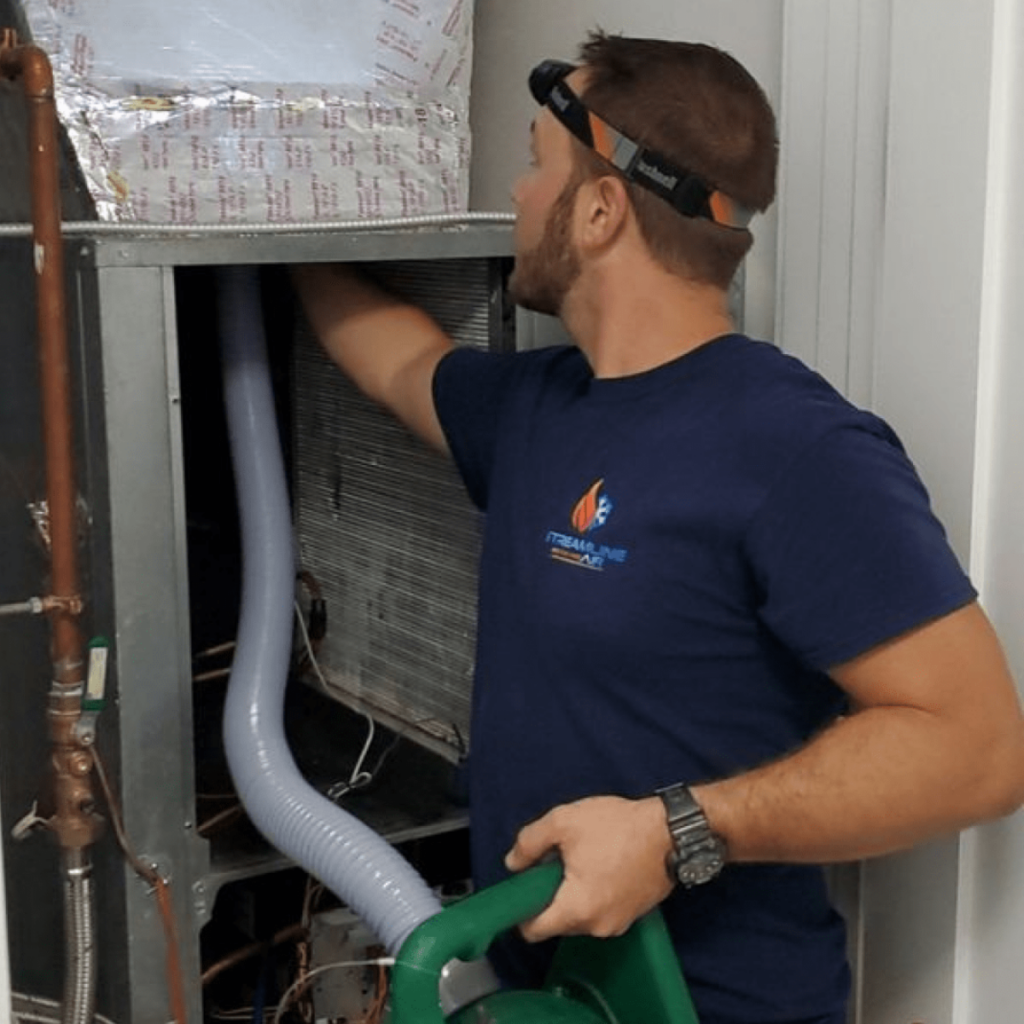
When you’re ready to pay for your new HVAC system replacement, you’ll have a few different financing options:
- Home equity loans
- Home equity lines of credit (HELOC)
- Home improvement loans
- Payment installments with your HVAC installation specialists
- Full payments
HVAC installation costs are subject to market fluctuations, so you’ll want to ask your HVAC specialists about the cost range of a new system at the time of replacement.
With these financial options in mind, there’s no reason why your next HVAC system replacement can’t be a total and effortless breeze.
Quick Tip
Quick tip on Nest thermostats: if you’re experiencing random issues with your Nest thermostat, make sure the home-away assist option is turned off.
For more fast facts and helpful tips about heating and cooling systems, check us out on social media. See you there!
Frequently asked questions (FAQ) about HVAC system replacements

What are the tell-tale signs that an HVAC system needs replacing?
You know that your HVAC system needs replacing if you notice any of the following on your central A/C unit and existing HVAC system:
- Your A/C unit isn’t holding the right temperature
- Your energy bills keep going up
- Your HVAC system is on the older side (for example, 10 years or older)
- If the repair work needed would cost you more than half of the cost of the HVAC system itself
- You notice more dust than usual inside your property
- You notice unusual sounds, smells, or leaks coming from your HVAC system
How much, on average, does an HVAC replacement cost?
On average, a standard 3-ton A/C unit can cost around $5,000. Furnaces and heat pumps can cost anywhere between $1,300 for mini-split systems to $50,000 or more for geothermal heat pumps.
The cost will depend on the size of your property, the HVAC brand, and the type of HVAC system you choose.
When should I replace my HVAC system?
If well-maintained over its lifetime, an HVAC system can last anywhere from 10-25 years. But, you may see diminishing returns on the indoor air quality on your property if your HVAC system has been overworked or under-maintained.
Coupled with insufficient insulation or unwanted airflow due to leaks and damage, an HVAC system may not last as long. To avoid emergency HVAC situations and ensure a long-lasting HVAC system, make sure your HVAC system receives regular maintenance by your trusted heating and cooling professional.
“Finished 3 days early, perfectly, and under quote…”
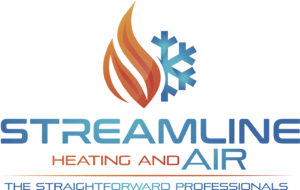
“We were recommended Clayton by some friends after being let down a few times by a local company. Right from the start, Clayton gave reassurance and confidence the job could be completed in a time scale.
Amazingly, the job was finished three days early, perfectly, and under the quoted price. This is the air conditioning company for us.” – Marie H., satisfied and grateful Streamline Heating and Air customer
Streamline your next repair job with top-quality HVAC services
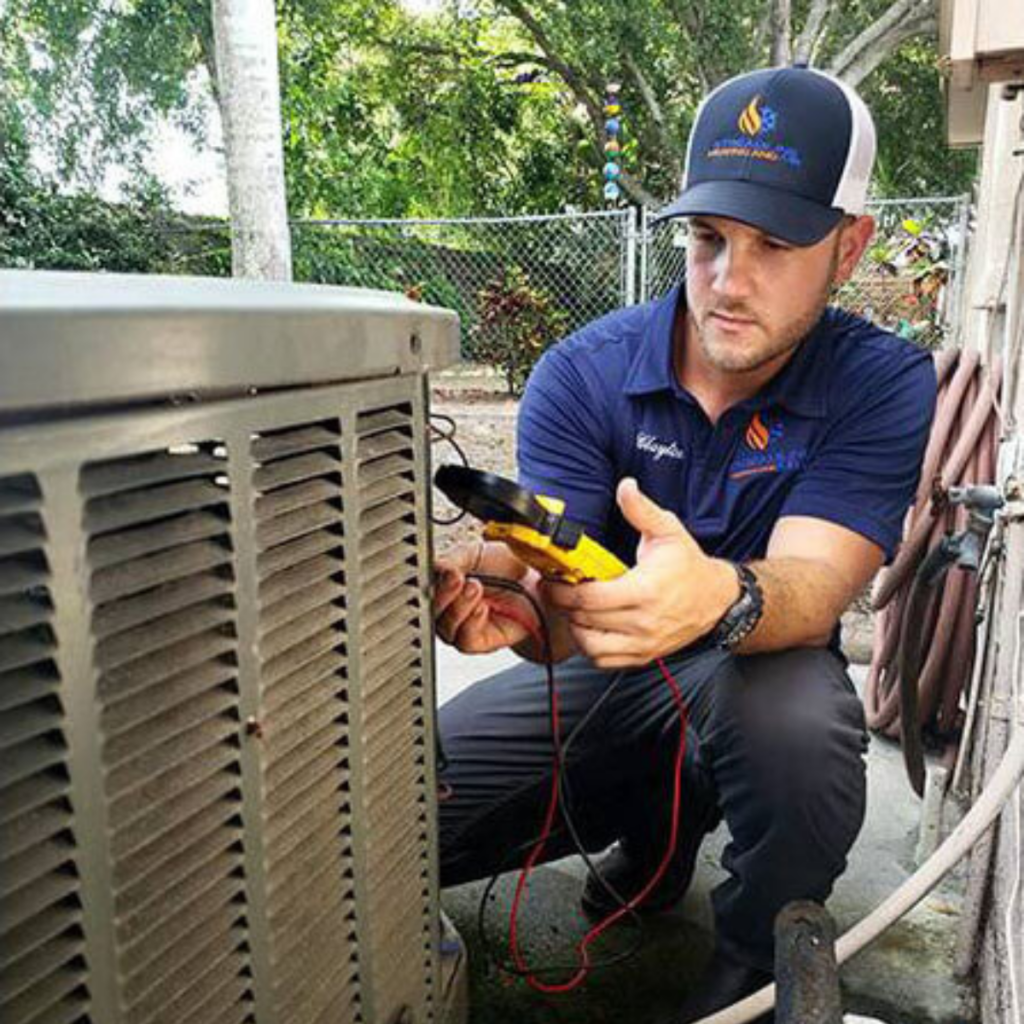
That wraps it up! In this article, we discussed:
- What an HVAC system is
- The cost of replacing an HVAC system
- 5 key factors that influence HVAC replacement costs
- Costs of essential HVAC components
- How to minimize the costs of your next HVAC system replacement
- Available financing options for HVAC system replacements
Depending on whether you’re revamping your central air unit, heat pumps, or humidifier, trust the Straightforward Professionals at Streamline Heating and Air for Straightforward Solutions for all your HVAC needs.
For more than 20 years, we’ve been Sarasota, Florida’s go-to HVAC technicians. Whether you need a new air conditioning unit or an HVAC technician to replace your HVAC unit, we’re there for you.
We offer 24hr emergency HVAC maintenance, repair, and installation services to better serve your needs.
For your complimentary HVAC consultation, reach out to us. We’re here to keep you healthy and comfortable.
Meet Sarasota, FL’s Heating and Cooling Experts

